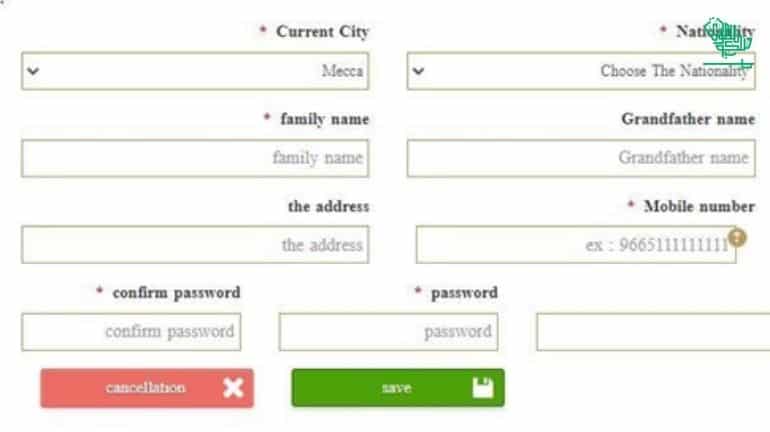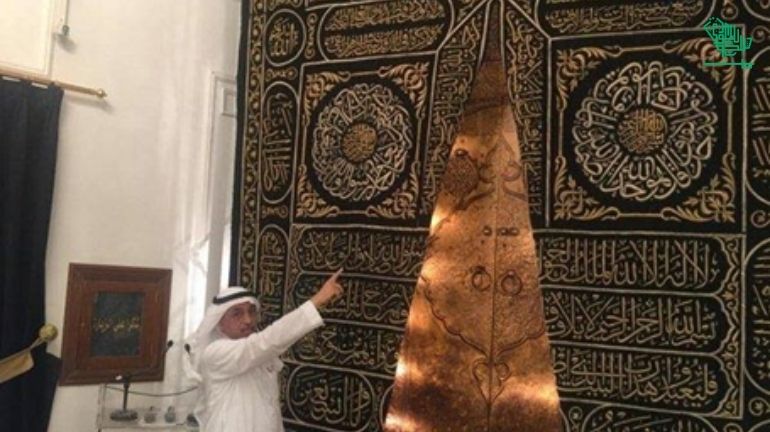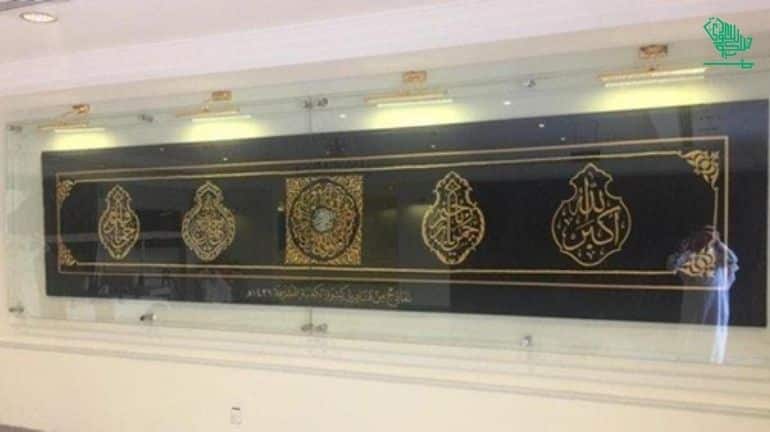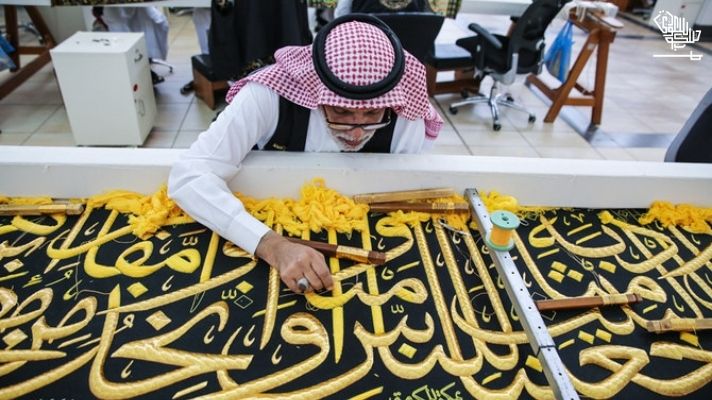The Kiswa Factory in Makkah is where the black cloth covering the Kaaba is made. Every year, a new Kiswa replaces the old one on the 9th of Dhul Hijjah during Hajj.
Visiting the factory offers a rare opportunity to witness firsthand how this sacred cloth, woven with gold and silver threads, is created. The factory is about a 10-minute drive from Masjid al-Haram and requires an appointment for a visit.
Quick Facts
- Location: 10 minutes from Masjid al-Haram, Makkah
- Tour Days: Saturdays, Mondays & Wednesdays (9 AM – 12 PM)
- Visitors: Groups of 20–100 (pilgrims, schools, delegations)
- Kiswa Cost: ~USD 6.5 million (silk + gold + silver threads)
- Duration: Tours usually last 1–2 hours
What is the Kiswa?
The Kiswa is made of 670 kg of black silk, embroidered with 120 kg of 21-karat gold thread and 100 kg of silver thread. Quranic verses are hand-stitched by skilled artisans, making it the most expensive cloth in the world.
👉 For more sacred sites, check out our guide on Exploring Ziyarat Historic Places in Makkah.
How the Kiswa is Made
The production process takes 10 months and includes weaving, dyeing, calligraphy design, and embroidery. Every step is carried out at the King Abdulaziz Complex for the Kiswa of the Kaaba.
External reference: Saudi Press Agency – Kiswa Factory.
Visiting the Kiswa Factory
Entry is restricted to approved groups (20–100 people). Eligible categories include pilgrims, delegations, schools, and institutions.
Tours let you see artisans embroider Quranic verses with gold and silver — a truly spiritual experience.
Location & Distance from Haram
The factory is just a 10-minute drive from Masjid al-Haram, making it easy to include in your pilgrimage itinerary.
If you’re planning a trip, also read our guide to Parking Near Masjid Al-Haram.
How to Book a Visit
There are two main ways:
- Official Online Portal
- Create an account on the Saudi e-services portal.
- Log in and select “Permit of the King Abdul Aziz Complex for the coverings of the Kaaba.”
- Fill the entry form with group details and attach an official request letter.
- Confirm date & time of visit.
- Travel Agencies
Many licensed Hajj & Umrah agents can arrange a Kiswa Factory visit. This is often the easiest route for international pilgrims.
The website is originally in Arabic, but the webpage can be translated into English using Google Chrome.


👉 If you’re traveling for Umrah, check our guide on Saudi Family Visit Visa for related visa details.



How Much Does the Kiswa Cost?
The Kiswa costs USD 6.5 million, due to:
- Silk fabric (670 kg)
- Gold thread (120 kg)
- Silver thread (100 kg)
- Skilled craftsmanship
Can I Buy a Piece of the Kiswa?
No, the Kiswa is not for sale. After replacement, the old cloth is cut and distributed to Muslim leaders, religious institutions, and museums.
FAQ
A. Yes, guided tours allow you to watch artisans at work.
A. Yes, entry itself is free, but you must have an approved appointment (via the official e-services portal) or go through a licensed Hajj/Umrah travel agent. Walk-ins and individual public tours aren’t available.
A. Create an account on the official Saudi e-services portal, select the permit for the King Abdulaziz Complex (Kiswa), submit group details (20–100 people) and an official request letter, then confirm date/time. Many travelers book via licensed agents who arrange this for you.
A. Typically on Saturdays, Mondays, and Wednesdays, 9:00 a.m. – 12:00 p.m. (schedules can change; confirm when booking).
DISCLAIMER: This blog post is intended solely for informational purposes. While we strive to ensure the information provided is accurate, up-to-date, and well-sourced, we cannot guarantee its completeness or absolute accuracy. All images, videos, and logos featured on this page are the property of their respective owners. We make every effort to provide proper credit and references. If you are the rightful owner and would like your image, video, or logo removed, please contact us.

Owais Qarni is a Co-Founder, Chief Editor, and Author of Saudi Scoop. He is passionate about tech, cars, and traveling. A Dreamer, Explorer & Optimist!





Comments are closed.